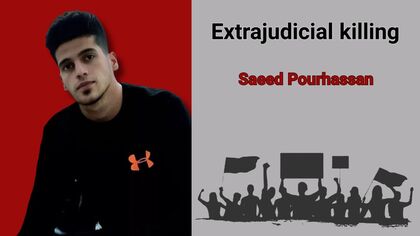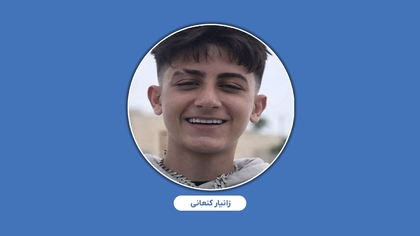Turkey calls on Iran to cut support for Assad regime
15:12 - 4 March 2012

KURDPA - As the number of deaths in Syria continues to grow, the international community can\'t formulate a practical decision on military intervention, the establishment of security zones for civilians fleeing from violence, or even the dispatching of secure humanitarian aid.
On Saturday, it was reported that 47 Syrian soldiers who tried to defect in the city of Idlib were executed by Syrian security forces. According to reports from opposition activists, civilians are being executed and kidnapped constantly and the Red Cross can\'t reach the Baba Amr neighborhood in Homs to assist the wounded. In some places, there is no water and there is a severe shortage of basic food items, and civilians are not able to escape areas under attack due to the massive presence of Syrian forces.
Turkey, which could serve as an effective conduit of arms to the rebels, is preventing arms transfers until a decision is made by the UN, and is trying to convince Russia and Iran to change their position. Turkish President Abdullah Gul said on Friday that ultimately Iran and Russia will realize they have no choice but to join international efforts against the Assad regime.
In the face of this massacre, civilians continue to demonstrate against the Assad regime in the main cities of Aleppo and Damascus, alongside dozens of demonstrations in cities like Homs, Daraa, Idlib and Latakia. But the Free Syrian Army, which withdrew from the Baba Amr neighborhood that was captured by the Fourth Brigade of the Syrian Army commanded by Maher al-Assad, cannot protect the demonstrators. The request of the Free Syrian Army commander, General Riad al-Asad, to receive arms and equipment was met with a hesitant response by the Arab League, especially Egypt which fears that arming demonstrators may cause a civil war and led to the disintegration of Syria. On the contrary, Gulf states, led by Saudi Arabia, Qatar and Kuwait, are unequivocally demanding to arm the Free Syrian Army and reportedly are also financing large-scale arms purchases. But the main problem is the transfer of weapons to the rebels, which is currently done in a haphazard manner by smugglers in Lebanon and Iraq.
The European Union has recognized the Syrian National Council - the largest opposition body - as the official representative of Syria and Libya offered it $100 million in financial assistance and permission to open an office in its territory, but these decisions have little practical significance. This is because the opposition is unable to speak with one voice. For example, after 20 of the 270 members of the national council left and announced the establishment of a military council, they were met with resistance and a lack of cooperation from the Free Syrian Army.
Even the statement of President Obama that \"the days of Bashar Assad are numbered\" sounds empty in Syria, since there is no plan of action behind it that shows how the American government will take out the Syrian president. Also, Syrians don’t believe that salvation will come from condemnatory messages from the UN chief, the proposal to create a humanitarian conference for Syria or the Friends of Syria conference to be held in another week in Istanbul.
Meanwhile, Assad can continue to bomb systematically, kill indiscriminately and turn Syria into a \"new Srebrenica\", as it was termed by a Gulf Cooperation Council representative in remarks at the UN.
Some in the Syrian opposition believe that the survival of the Assad regime serves the interests of the U.S. and Israel, as Washington wants to use Syria as a card in negotiations with Iran on the nuclear issue and Israel sees the Assad regime as a security guarantee on the Syrian border. The Syrian regime, however, holds the opposite theory, that the U.S. and Israel are trying to topple Assad. As proof, it reports on the presence of Israeli weapons in Homs.
On Saturday, it was reported that 47 Syrian soldiers who tried to defect in the city of Idlib were executed by Syrian security forces. According to reports from opposition activists, civilians are being executed and kidnapped constantly and the Red Cross can\'t reach the Baba Amr neighborhood in Homs to assist the wounded. In some places, there is no water and there is a severe shortage of basic food items, and civilians are not able to escape areas under attack due to the massive presence of Syrian forces.
Turkey, which could serve as an effective conduit of arms to the rebels, is preventing arms transfers until a decision is made by the UN, and is trying to convince Russia and Iran to change their position. Turkish President Abdullah Gul said on Friday that ultimately Iran and Russia will realize they have no choice but to join international efforts against the Assad regime.
In the face of this massacre, civilians continue to demonstrate against the Assad regime in the main cities of Aleppo and Damascus, alongside dozens of demonstrations in cities like Homs, Daraa, Idlib and Latakia. But the Free Syrian Army, which withdrew from the Baba Amr neighborhood that was captured by the Fourth Brigade of the Syrian Army commanded by Maher al-Assad, cannot protect the demonstrators. The request of the Free Syrian Army commander, General Riad al-Asad, to receive arms and equipment was met with a hesitant response by the Arab League, especially Egypt which fears that arming demonstrators may cause a civil war and led to the disintegration of Syria. On the contrary, Gulf states, led by Saudi Arabia, Qatar and Kuwait, are unequivocally demanding to arm the Free Syrian Army and reportedly are also financing large-scale arms purchases. But the main problem is the transfer of weapons to the rebels, which is currently done in a haphazard manner by smugglers in Lebanon and Iraq.
The European Union has recognized the Syrian National Council - the largest opposition body - as the official representative of Syria and Libya offered it $100 million in financial assistance and permission to open an office in its territory, but these decisions have little practical significance. This is because the opposition is unable to speak with one voice. For example, after 20 of the 270 members of the national council left and announced the establishment of a military council, they were met with resistance and a lack of cooperation from the Free Syrian Army.
Even the statement of President Obama that \"the days of Bashar Assad are numbered\" sounds empty in Syria, since there is no plan of action behind it that shows how the American government will take out the Syrian president. Also, Syrians don’t believe that salvation will come from condemnatory messages from the UN chief, the proposal to create a humanitarian conference for Syria or the Friends of Syria conference to be held in another week in Istanbul.
Meanwhile, Assad can continue to bomb systematically, kill indiscriminately and turn Syria into a \"new Srebrenica\", as it was termed by a Gulf Cooperation Council representative in remarks at the UN.
Some in the Syrian opposition believe that the survival of the Assad regime serves the interests of the U.S. and Israel, as Washington wants to use Syria as a card in negotiations with Iran on the nuclear issue and Israel sees the Assad regime as a security guarantee on the Syrian border. The Syrian regime, however, holds the opposite theory, that the U.S. and Israel are trying to topple Assad. As proof, it reports on the presence of Israeli weapons in Homs.



